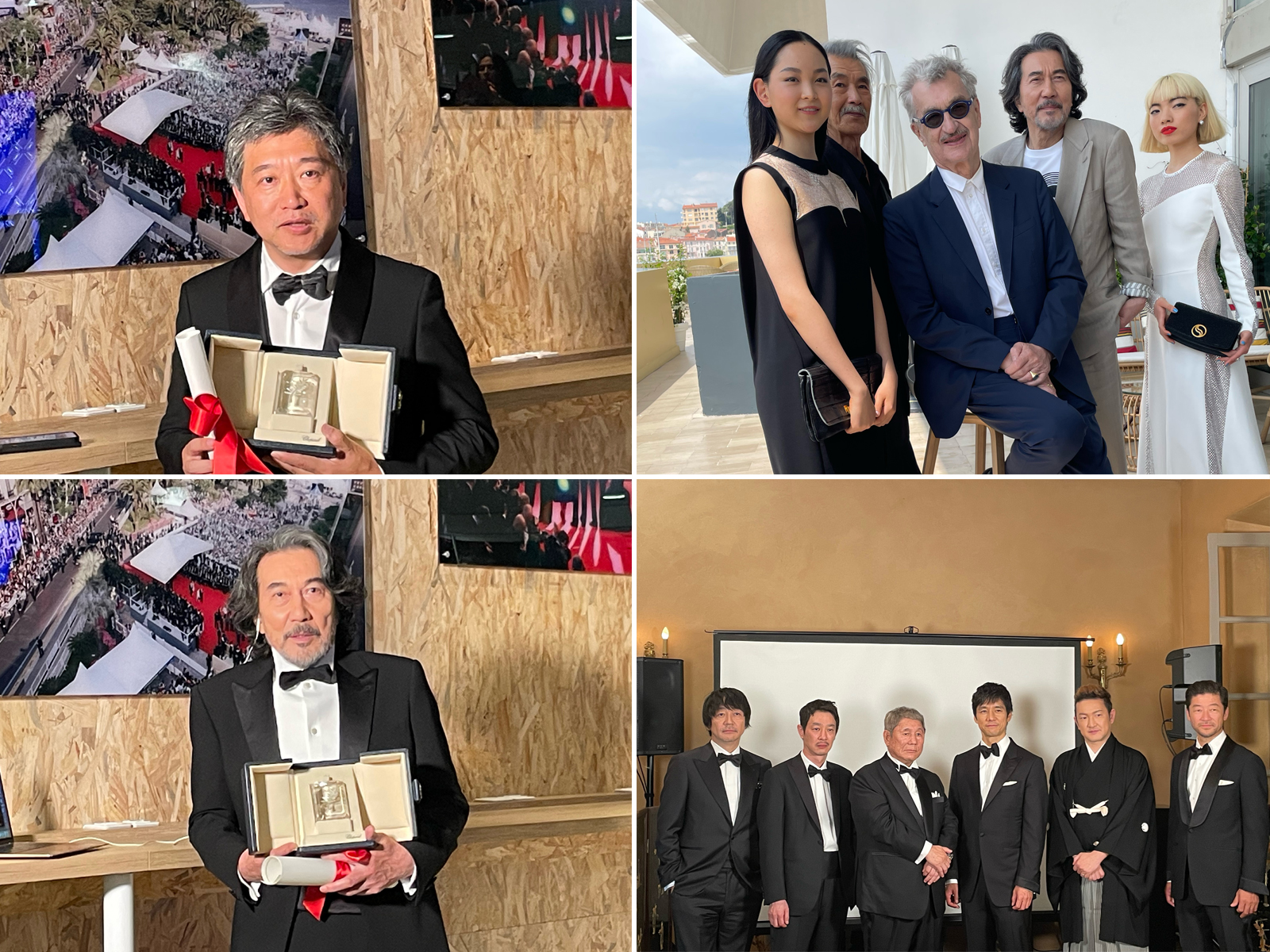
- Festivals
Japanese Cinema Had a Significant Year at the 76th Cannes Film Festival
At this year’s Cannes Film Festival, Hirokazu Kore-eda‘s Monster, a recent film by the Cannes regular director, received the Best Screenplay award for its script by Yuji Sakamoto. German director Wim Wenders‘ Perfect Days, funded by the Japanese fast fashion brand Uniqlo, won the Best Actor award for Koji Yakusho, who portrayed a janitor in a public restroom in Tokyo who loves a quiet life. In addition to these, Takeshi Kitano, a Venice Film Festival award winner, has brought his latest film, the queer period drama Kubi, to the Cannes Premiere section.
Based on a small incident at an elementary school, Monster is a Rashomon-style film told from the viewpoints of a mother, a teacher, and a group of children. It is Kore-eda’s first film since his debut film, Maboroshi, for which he has not written the script himself. Yuji Sakamoto, who won the Best Screenplay for the film, has until now contributed mainly to Japanese TV series: he is popular in Asian countries, but this is his first experience of attending an international film festival.
“I thought the structure (of the story) was very robust and relevant because it makes it possible to involve the spectator,” Kore-eda stated at the film’s press conference. “We are looking for a monster which doesn’t exist. And I believe that this three-part structure makes it possible to involve the spectator in terms of the characters.” Ryuichi Sakamoto, who passed away in March of this year, composed the music for the film. An Oscar winner for The Last Emperor, and two time Golden Globe Best Score winner for The Sheltering Sky and The Last Emperor, he said to Kore-eda after he had seen the first edit, “These three sounds of instruments are wonderful. So, I tried to have music that would not disturb this atmosphere.” He composed two new songs for what would become his last soundtrack.
The other Sakamoto, Yuji, said, “Because I am a writer, I always doubt words. At the very beginning of this story, the characters talk together. But there are a lot of misunderstandings that arise out of the discussions. Yet words enable you to talk about love and to convey your love: what are the words that you can believe in? I think that one of the means I found by which the characters could communicate and understand each other consisted in exchanging the sounds of the instruments. They weren’t bound by the words. Yet at the same time they were able to talk to each other through the music and that’s what I wanted to write and to convey.”
In a roundtable interview with HFPA, Kore-eda was asked the question, what is the invisible “monster” depicted in the film? He replied, “This film takes place in a small elementary school in a small town in Japan. Yet it’s very universal as well, because it explores how when we don’t try to understand one another, it causes a divide within us and might drive each of us to view the other as a monster due to our restricted perspective. And this phenomenon is not only happening in Japan; it’s happening everywhere in the world.”
Monster also won the Queer Palm, an independent award given to films with queer subject matter.
Koji Yakusho, who won the Best Actor for Wim Wenders’ Perfect Days,, is not only the lead actor of the film but also the executive producer. Yakusho’s name and face are well known from 1997’s Palme d’Or-winning film The Eel, directed by Shohei Imamura, Juzo Itami’s Tampopo, and Alejandro González Iñárritu’s Babel and Shall We Dance? which was remade in Hollywood. But, surprisingly, this is his first international accolade. At a press conference after receiving the award, Yakusho, who played Hirayama, a character who loves simply seeing sunlight filtering through trees, commented, “It was a big challenge for me. A great director, Wim Wenders, showed a great respect for this fictional character. I would like to continue my efforts to make Japanese and world cinema even more wonderful, in whatever small way it may be.”
Wenders then gave the character his blessing. “Through this film, we slowly come to accept Hirayama’s way of seeing and living. In doing so, we feel the healing power of his choice to live for the sake of others.”
After the Festival, the two award-winning films, Monster and Perfect Days, will be exhibited at film festivals and screened in theaters around the world.

